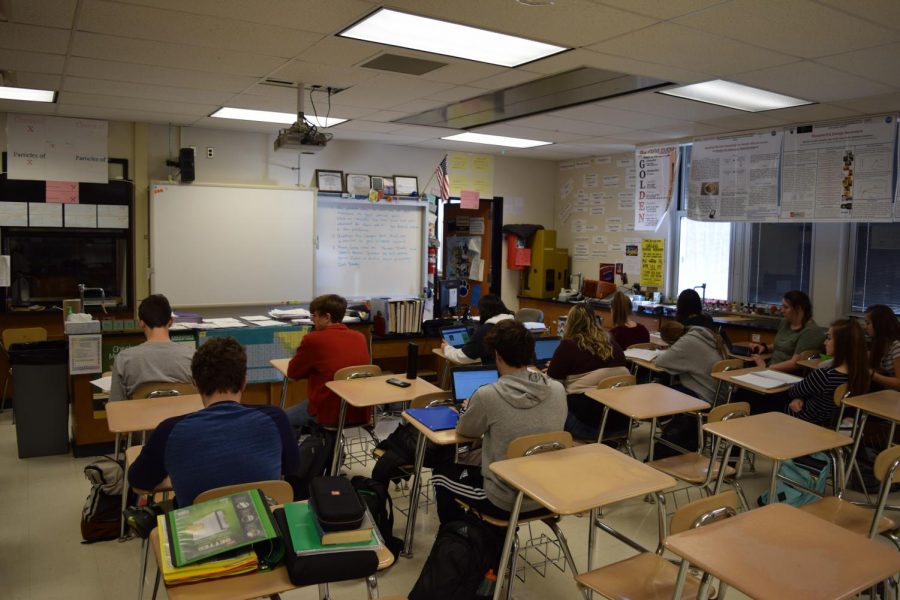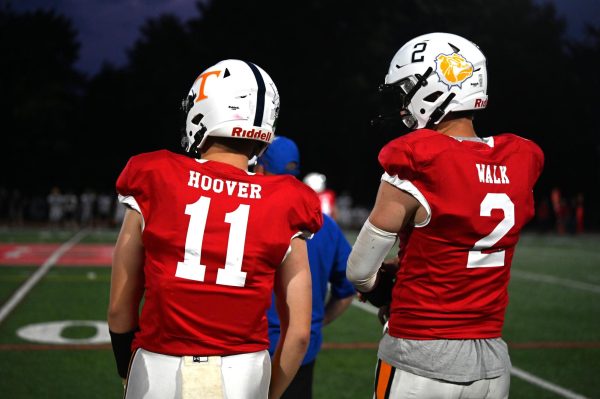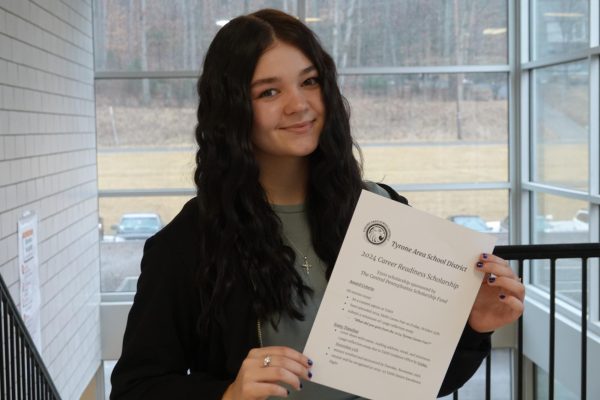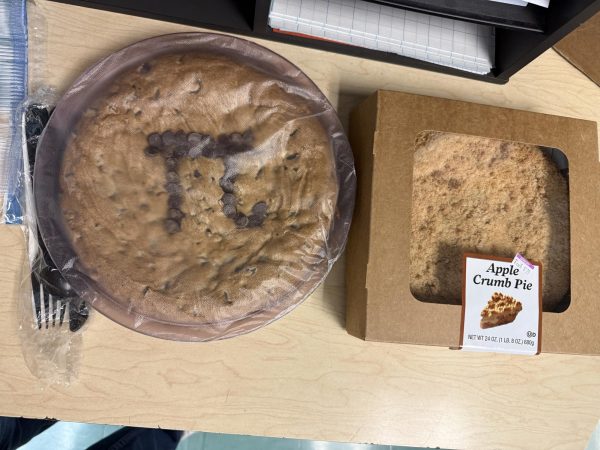Tyrone High School Offers Six Dual Enrollment Courses
These courses allow the student the option to earn college credit as well as high school credits toward graduation.
The third period DE Chemistry 2 class focusing on their work. Teacher shortages exist in all content areas, but they are especially concerning in high school math and sciences.
As a part of its academic curriculum, Tyrone Area High School offers a wide variety of courses. Along with the normal core classes and diverse electives, students are also able to enroll in several college-level dual enrollment courses.
“Expectations in dual enrollment classes are higher. Students are expected to complete more work outside of class, and the work and assessments are more rigorous. It’s great preparation for college,” said Tyrone math teacher Michele Marasco, who teaches DE Statistics and DE Calculus.
Basically, the dual enrollment (abbreviated as “DE”) courses are courses offered by nearby colleges and universities that students can take in high school. Some require a placement test or a minimum grade point average for students to enroll.
These courses are more rigorous than the typical high school class. They are designed to be taught and paced like a college class. If passed, they can count as high school and college credit, making them beneficial for the college-bound student.
“Both classes are standard college English composition and literature courses and require much more outside work and reading than a typical high school class… If both classes are completed successfully, students don’t have to take English 12 their senior year,” said Kathy Beigle, who teaches DE English comp 1 and 2.
So far most students have found the courses to be beneficial.
“I took this class because I wanted to be ahead for college. It’s hard, but not too hard,” said senior Olivia Reese about her DE English class.
It’s important to note that these courses are just like they would be at their respective colleges, in terms of credits. Even if the student is not planning to go to college who is sponsoring the course, the credits earned can be transferable to other schools, as long as the receiving school accepts them.
Sophomore Stephanie Ramsey sees these classes as a way for her to prepare for college.
“I want to be an engineer and math is essential to do this… It moves at a lot faster pace and there is a lot more work that needs to be done outside of class,” said Ramsey about DE Calculus.
To receive and transfer the college credits students must register with the college and pay for credits. The price is dependent on the number of credits, and while it may look a little pricey at first glance, it can save students money in the long run.
Currently, there are six DE courses offered at Tyrone: US history, chemistry 2, calculus, college algebra, public speaking, English comp 1 and 2, and statistics. Not just anyone can teach a dual enrollment class, however. For a teacher to be able to teach a dual enrollment, the teacher must have a master’s degree in that subject.
Since Tyrone offers several DE courses, some students are able to earn enough credits throughout their entire high school career to be able to shorten their collegiate career by a whole semester or more.
“We go a lot faster than our other classes and our tests are much more difficult. But it’s good to challenge yourself, it’ll pay off in the long run,” said senior Brent McNeel about DE Chemistry 2.

Hey, I'm Dan Parker. I'm a senior, and this is my first year and last year in Eagle Eye. I'm a member of the boy's varsity soccer and track team, and I...












